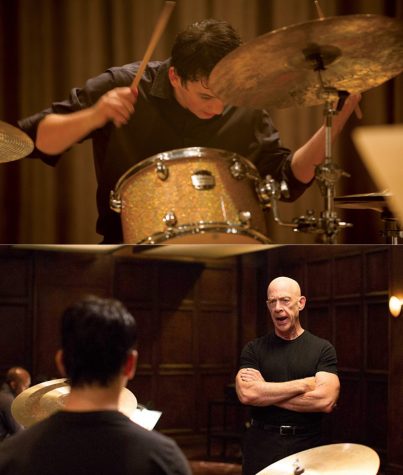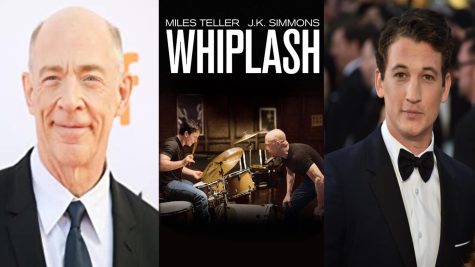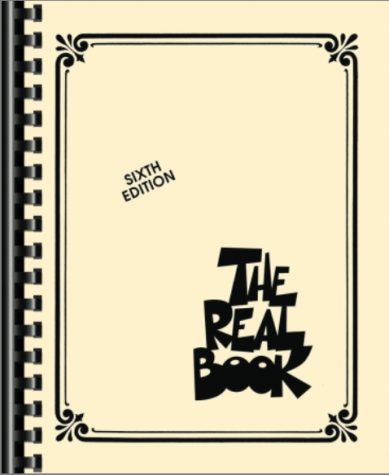Whiplash Review
The film Whiplash was released in 2014 to critical acclaim. It has been widely praised for its acting, directing, writing, and message. The film has been criticized for its poor portrayal of the jazz world, and I will weigh both the arguments for and against the importance of getting jazz right, and how you won’t need a music degree to enjoy this film.
June 9, 2022
WHIPLASH REVIEW
What’s the difference between a passion and an obsession?
“Whiplash” by Damien Chazelle is a film both asks and answers that question with the relationship between Andrew Neiman, the young scrappy drummer of the Schafer conservatory, and Terrance Fletcher, the volatile and condescending Band leader of the conservatory. Like Jazz, Whiplash tries many different ideas and reaches many places, whether it be from the cinematography to the pacing to the writing. In this review I hope to examine where these ideas worked, where they fell short, and the importance of Jazz music to the film as a whole.
SUMMARY
Whiplash’s plot is quite simple. Andrew Neiman is an up-incoming Jazz drummer that has just made it into the illustrious Schafer Music Conservatory and is taught by the uptight and borderline sadistic band leader Terrence Fletcher, who is jaded by the current idea of Jazz in the modern world, and deep down desires greatness from his students. After making it into the conservatory, Andrew begins to lose touch with everything else in his life, his family, his love life, and anything that could get in the way of him achieving perfection, an idea embedded in him by fletcher. In the end, Neiman is brought all the way down, and he almost loses everything, but finds the greatness deep within him to succeed, and finally get the one thing he had focused on so much for his entire experience in the band: the approval of Terrence Fletcher.

Cinematography
The cinematography in this film is delightful, there are so many interesting and uniquely framed shots, and the lighting is especially tasteful, with many scenes seeming to have a green glow, and it never seems to be too noticeable. However, one of the best scenes is the final ten minutes of the film and the performance of Caravan. The shots of the different instruments, all the moving of the camera really capture the movement and fluidity of Jazz, which I really loved to see. The film is incredibly well shot, and I have almost no critiques about the direction.
Writing/Acting
The 2 main performances in the film are spectacular. Miles Teller isgreat as the naive but driven young drummer, willing to do anything to achieve greatness, and J.K. Simmons is terrifying as the cruel and manipulative band leader. Neiman and Fletcher have a conflicting relationship, Andrew both respects and fears Fletcher. He hates and admires him. Fletcher is the source of Andrews’ struggle but also his success. It is very difficult to parse because, on one hand, Fletcher is abusive and cruel, but without that push, Andrew would not have become as great as he does. It feels like a very real situation of an abusive relationship, where Andrew is too blind to see that Fletcher is harmful to him. The complexity and depth these characters bring is amazing, I feel like at one point or another I’ve met someone who perfectly mirrored them, whether it be a strict demanding coach, or an ambitious, talented classmate. Rest assured that this movie isn’t all music. The primary focus is on the relationship between Fletcher and Neiman, and the complex relationship of abuse echoes real life power struggles, making Whiplash a lot more accessible if you don’t know a lot about Jazz.

Generally, the writing is great. Again, the dialogue, character writing, and staging is all great. The pacing is smooth, and the plot is solid and engaging, albeit simple. However, one criticism I definitely hold towards the film is that every side character seems horribly underdeveloped. They are adequate, but Andrew’s father, girlfriend, and any bandmates seem like afterthoughts, and more like set pieces to fill out Andrew’s life. I would’ve loved to see the complexity of Andrew’s falling out with his girlfriend, more than just “You’re not as important as Jazz, sorry”. More emphasis would have had a bigger emotional impact, and driven the overall message of obsession further. The ending message of the film just feels like Fletcher’s philosophy of beating students down in order to make them great musician actually works, because after all the abuse and hate, Miles impresses fletcher, and its implied that the approval of Fletcher is all that matters, which contrasts with the message of the film leading up to the ending. It’s almost as if the villain gets what he wants, and suffers no consequences, and it’s supposed to be a feel-good moment, but I felt slightly dissatisfied. The ending scene is great, don’t get me wrong, but I feel like it could have been delivered in a better context. These are my personal feelings, however it could have been viewed completely differently, so take this with a grain of salt.
JAZZ
To begin, this movie is a good representation of someone passionate to an obsession about something in their life, but not Jazz itself. Sure, the entire setting of the movie is a college Jazz band, and the soundtrack is all Jazz, but there are still a lot of things that could be more accurate. The thing is with this movie, If you switched it out for, say, a basketball player and a strict coach, and the process of becoming great, you would have the same movie. This isn’t to say it gets Jazz all wrong, there is definitely a level of research, with the general lingo, sound, vibe of Jazz culture getting a lot of love. However, your understanding of Jazz based on this film will be surface level to slightly inaccurate about many things.

Andrew slamming his drums so hard that his fists start bleeding when he’s practicing is comical, and seems like it would be a better fit in Rocky than a movie about music. These inaccuracies all wouldn’t really matter if there were more representations of Jazz in pop culture, but because this is the primary exposure many people unfamiliar with Jazz get as a “peek inside” that world, the strange issues become more important.
Ending Thoughts
The film is excellently shot, written, performed, and scored, but the lack of research into what Jazz is really like is disappointing to see. However, the representation of Jazz and music education in general in this film is far less important than the core themes of obsession from an artist ruining their life but helping them achieve greatness.
I do wish Whiplash got Jazz right, but the critically acclaimed film the Jazz is in makes up for it pretty well.
Another film with similar direction and style that you would enjoy if you enjoyed Whiplash is La La Land, which also happens to be directed by Damien Chazelle. If you are interested, I recommend you take a look at Variety’s review for more information on the film. Additionally, I would recommend you take a look at Grace Carlo’s article on other films to watch if you are interested.





